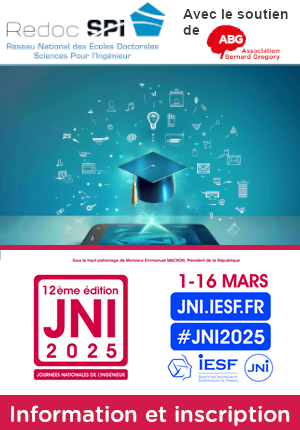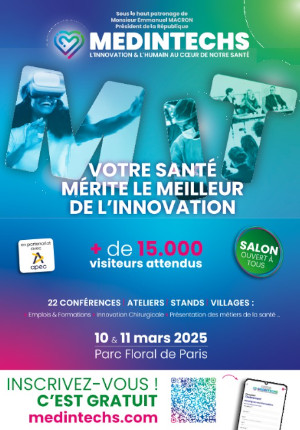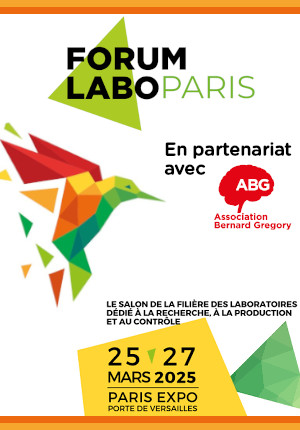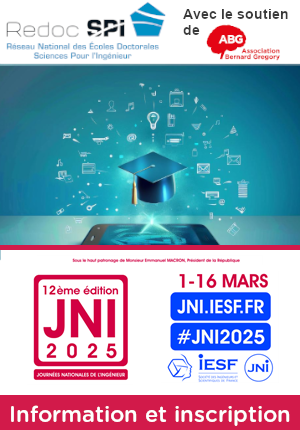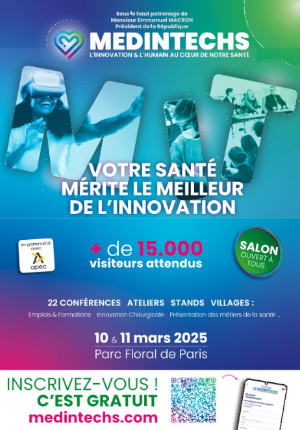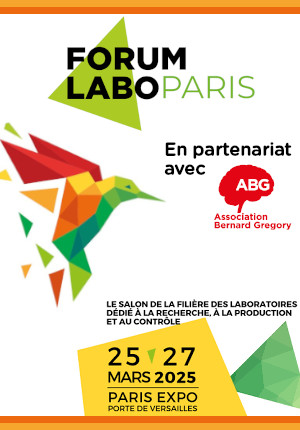A multi-species transport modelling of mineral carbonation in recycled concrete powder incorporated cement-based materials.
| ABG-128071 | Master internship | 5 months | 500-600 euros |
| 2025-01-22 |
- Civil engineering, construction and public works
- Engineering sciences
Employer organisation
Encadrants:
Syed Yasir ALAM, GeM-Ecole Centrale Nantes.
Zengfeng ZHAO - Research Professor, Tongji University, China
Location GeM, Ecole Centrale de Nantes, France
https://www.ec-nantes.fr/english-version/research/research-institute-in-civil-and-mechanical-engineering-gem
https://gem.ec-nantes.fr
Description
|
|
INTRODUCTION : Carbon sequestration in cement-based materials has emerged as a critical pathway for reducing greenhouse gas emissions in the construction sector. Among the various strategies, the integration of recycled concrete powder (RCP) as a partial cement replacement offers dual benefits: recycling construction and demolition waste while reducing reliance on clinker. RCP, containing unhydrated cement particles and residual hydration products, presents a unique opportunity for enhanced carbon sequestration through both early-age carbon curing and long-term carbonation. Recent research has extensively investigated the feasibility of early-age carbonation curing for concrete densification. In the long term, carbonation continues to impact the performance of RCP-blended binder systems. Residual unreacted phases in RCP and the altered microstructure from early-age curing may lead to progressive carbonation under environmental exposure, further contributing to CO₂ sequestration. Reactive transport modeling offers a powerful approach to understanding the interplay between chemical reactions, mass transport, and microstructural changes during carbonation. These models simulate coupled processes involving the dissolution of hydration products, precipitation of carbonates and the evolution of porosity and transport properties. This provides insights into material microstructure and durability performance under early age carbon curing and long term carbonation conditions. This internship aims to develop a reactive transport modeling framework to study the carbonation processes in carbon-cured cement-based systems containing recycled concrete powder. By simulating the interactions between CO₂ and the cement matrix, the research seeks to optimize the carbonation process for enhanced material properties and sustainability. OBJECTIVE OF THE INTERNSHIP: The primary objective of this internship is to develop a multi-species reactive transport modeling framework to simulate the carbonation processes in RCP-incorporated cement-based materials. The framework aims to capture the interactions between hydration, carbonation and mass transport, providing insights into the carbon sequestration potential and its effects on the microstructure and durability of these materials. The internship will address the following specific objectives:
DETAILED PLAN OF ACTIVITIES: The internship will commence with an extensive literature review to establish the theoretical framework for the study. This will involve examining existing research on carbonation mechanisms in cement-based materials, with a particular focus on carbon curing and its application to systems incorporating recycled concrete powder (RCP). The review will identify key parameters that influence carbonation, including the chemical and physical properties of RCP, CO₂ transport and the evolution of hydration and carbonation products. This step will provide a solid foundation for understanding the coupled processes of hydration and carbonation in blended cements. Following the theoretical groundwork, a reactive transport modeling framework will be developed by extending the in-house (GeM Institute, Centrale Nantes) advanced reactive transport model to simulate the carbonation process in RCP-blended cements. The model will integrate hydration and carbonation processes, accounting for the interactions between CO₂ and the reactive phases in RCP, such as calcium hydroxide and un-hydrated clinker particles. The modelling phase will involve investigation of the carbonation process during early-age carbon curing and long-term exposure by analyzing how varying curing conditions - such as CO₂ concentration, pressure, curing duration and the proportion of RCP affect the carbonation efficiency and the resulting microstructure of the material. The simulations will analyze the formation of stable carbonates, changes in porosity, and the evolution of phase composition over time. Additionally, a sensitivity analysis will be conducted to determine the impact of different variables on the carbonation process and material performance. The model will be validated by using experimental data (from Tongji University) or benchmarks from the literature. This will involve comparing the predicted outcomes—such as phase evolution, pore structure, and CO₂ uptake efficiency—with experimental observations. The validation step is critical for ensuring the reliability and applicability of the developed model to real conditions. |
|
|
Duration of internship: 5-6 months Internship allowance: Yes Possibility of pursuing a doctorate: subject to funding |
||
Profile
|
Profile sought: Masters 2 in Civil Engineering and/or Mechanics, with motivation towards sustainable cementitious materials. Interest in modelling and experimental characterization of materials. Previous knowledge of thermodynamic modeling and/or experimentation is a plus. Ability to work in a team and in a multidisciplinary environment. Excellent communication skills (bibliographic analysis, interaction with doctoral students and researchers, engineers and technical staff, participation in meetings, presentation of results, writing of reports and articles). |
Starting date
Vous avez déjà un compte ?
Nouvel utilisateur ?
Get ABG’s monthly newsletters including news, job offers, grants & fellowships and a selection of relevant events…
Discover our members
 Ifremer
Ifremer  MabDesign
MabDesign  SUEZ
SUEZ  CESI
CESI  ADEME
ADEME  Institut Sup'biotech de Paris
Institut Sup'biotech de Paris  Généthon
Généthon  Tecknowmetrix
Tecknowmetrix  Laboratoire National de Métrologie et d'Essais - LNE
Laboratoire National de Métrologie et d'Essais - LNE  Groupe AFNOR - Association française de normalisation
Groupe AFNOR - Association française de normalisation  MabDesign
MabDesign  PhDOOC
PhDOOC  Aérocentre, Pôle d'excellence régional
Aérocentre, Pôle d'excellence régional  ANRT
ANRT  TotalEnergies
TotalEnergies  ONERA - The French Aerospace Lab
ONERA - The French Aerospace Lab  Nokia Bell Labs France
Nokia Bell Labs France  Institut de Radioprotection et de Sureté Nucléaire - IRSN - Siège
Institut de Radioprotection et de Sureté Nucléaire - IRSN - Siège  CASDEN
CASDEN



